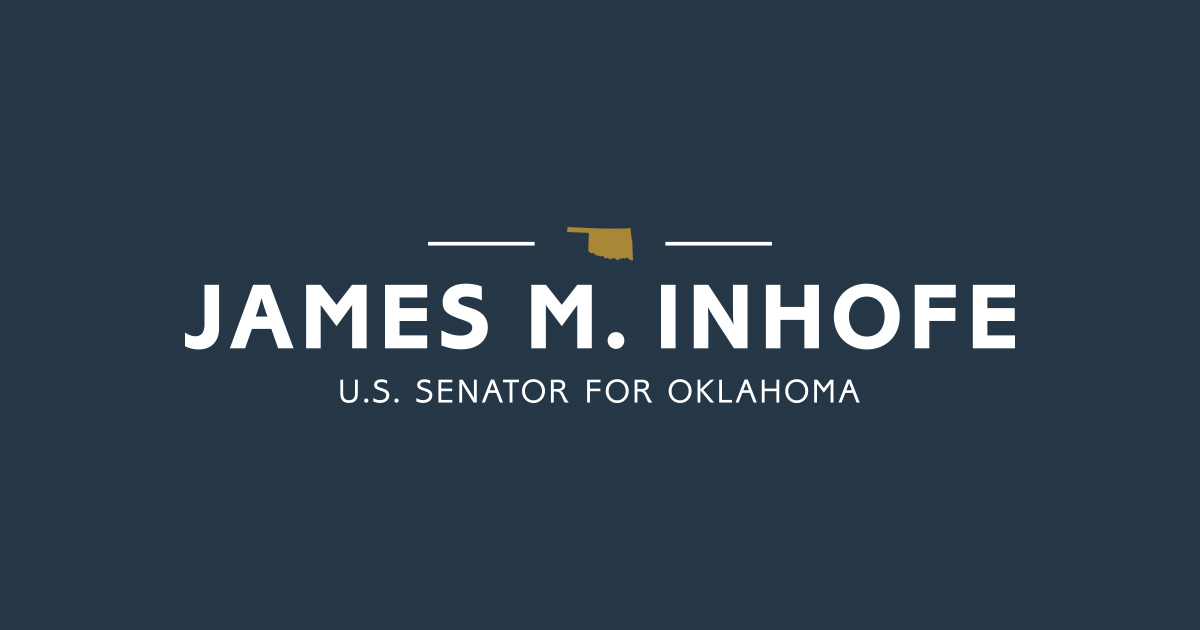Source: United States Senator for Oklahoma James Inhofe
Today, U.S. Sen. Jim Inhofe (R-Okla.), senior member of the Environment and Public Works (EPW) Committee, questioned witnesses at an EPW oversight hearing to examine the response by the U.S. Army Corps of Engineers to Hurricane Ida.
Witnesses included: Major General William H. “Butch” Graham, Deputy Commanding General for Civil and Emergency Operations, U.S. Army Corps of Engineers; Brigadier General Thomas J. Tickner, Commanding General, North Atlantic Division, U.S. Army Corps of Engineers; and Colonel Stephen F. Murphy, Commander, New Orleans District, U.S. Army Corps of Engineers.
Inhofe: Thank you, Madam Chair.
I know this hearing is on Ida, but all three of the individuals as witnesses here were participants in a real tragedy that we faced in 2019; a flooding case in Oklahoma where we had levees that were 75 years old, and well, well past their normal, historic lifetime. They held up. I can remember actually being up to my waist in water during that time. It was something that we were very fortunate. Since that time, we’ve been on pins and needles, what might happen if we should get another flood. But nonetheless, everyone performed very well, and the WRDA language that we put into the 2020 WRDA performed very well.
General Graham, as the Corps plans and budgets for future projects, do you believe it’s important to take into account safety-of-life benefits, like you did in the Tulsa levees chief’s report?
Graham: Senator, absolutely.
Inhofe: I have to say that we really did a good job, in terms of the private sector. We had to make some changes in our current statutes, to accommodate that at the time, and things that did work and worked out real well. Now, we don’t have many hurricanes that hit Oklahoma, but what is important to remember is that Oklahoma is connected, as Arkansas is, to the Mississippi River through the MKARNS. A lot of people have a hard time understanding that we in Oklahoma are navigable. You know, I probably said this three or four hundred times in the last few years to let people know that we need to be a part of a system and participating in that system. I’ve actually done really good work in terms of working with the private sector.
Colonel Murphy, I would have to say this, I’m sure, Senator Boozman, and I spent a lot of time working on these; on the impact of that navigation way.
Colonel Murphy, is it true that getting our navigable waterways open to commerce is key to a successful recovery effort? And how does the Corps prioritize dredging efforts following flooding and storm surge events?
Murphy: Senator, thank you for the question. I’d say absolutely. That’s one of the first things we’re looking to do, as soon as we can get boats on the road and in the water. I have survey boats going out on all the federal waterways I’m responsible for to get surveys in conjunction with the Coast Guard to clear them.
Inhofe: Okay, I appreciate that.
The 2019 flooding was a shock and expose a lot of gaps in our system, but we’re lucky in Oklahoma to have numerous private sector entities where we had to bend the law a little bit to make it happen. So what I’d like to ask you to do is, for the panel for the future, look at the authorities, what authorities does the court need to enable them to respond as capably as they did respond in this case. This might be something that you can do for the record; get your ideas together as to how can we work more efficiently with the private sector, such as we did in state of Oklahoma?
Okay. Very good. Thank you.
